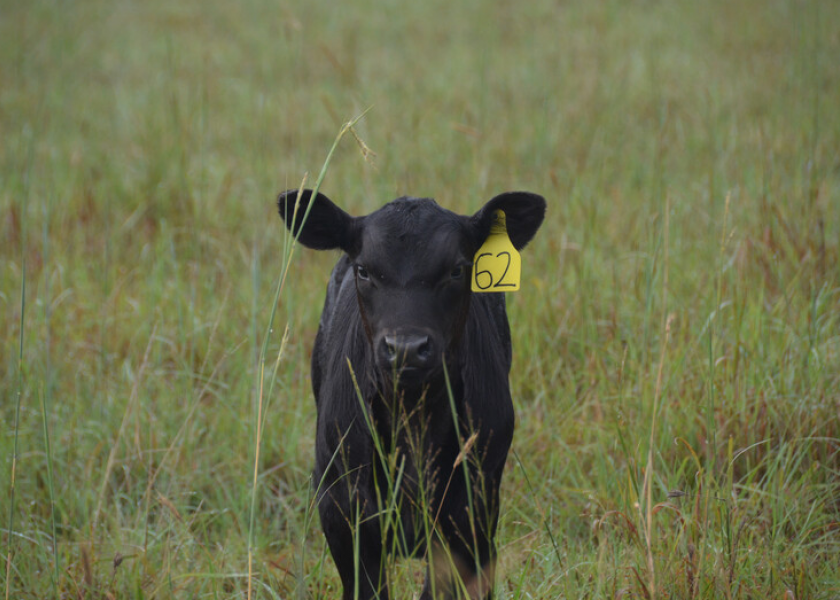Two Veterinarians Talk Calf Care

Young calves continue to dot fields across the country, as we immerse into calving season. To help offer young calves a healthy start, Valley Vet Supply Technical Service Veterinarians, Tony Hawkins, DVM, and Ray Shultz, DVM, shared some tips.
Umbilical infections are a real thing, and so are scours, says Dr. Hawkins. These are two of the more immediate risks a newborn calf may be up against. To best prevent navel infections, immediately tie off the umbilical cord with a suture line to prevent bacteria from traveling up and building into the bloodstream. Cut it two to three inches from the body, and then disinfect the stump with iodine or navel care solution. I will mention, though, that if you're not able to do it immediately, clamping or tying off can actually do more harm than good. This is because if there's already contamination, you could be sealing in the bacteria. I recommend suturing or clamping off the navel within a six to 12-hour window.
Signs of an umbilical cord infection can include:
-
Umbilical stump feels larger than the size of your pinky finger
-
Lethargy
-
Unwillingness to stand and/or nurse
-
Hypothermia
-
Scouring diarrhea stress response
Scours is one of the gravest challenges affecting young calves, says Dr. Hawkins. Symptoms include calf diarrhea and watery stool, weakness, reluctance to stand or nurse, and sunken eyes. If calves experience an early scours case, there are effective antibody products that can be given immediately following birth to help them overcome it. We also can vaccinate them simultaneously to help stimulate their own protection. If they’re dealing with Clostridium perfringens scours, then we can provide calves with antiserum at birth that provides three weeks of protection. Scours causes damage in the intestines and gut, and it can take up to 10 days for those calves to heal up from that and normalize stool consistency.
Spreading cattle out onto clean ground during calving will minimize their exposure to those pathogens (an approach known as the Sandhills Calving System). If you have the space, then that's your best prevention for scours.
Have some prescription antibiotics on hand, in case you need to treat your calves for an umbilical infection or scours, but make sure antibiotic treatment is absolutely necessary. Talk with your veterinarian to learn more and be prepared, should you experience any trouble.
Check right away for calf vitality, says Dr. Hawkins.. You really want that calf to be able to stand up and start nursing within 10 minutes. If the calf is sluggish to stand, either due to a difficult birth or environmental conditions, then we need to be intervening, administering colostrum replacers and helping him to stand and nurse on his own. To help prevent dehydration, it’s a good idea to have electrolyte packets on hand, in case your calves start scouring or do not want to nurse.
During springtime, take steps to prevent summer pneumonia, says Dr. Shultz. I’ve always thought of summer pneumonia being related to the antibody levels from the colostrum dropping below protective levels, usually when the calf is 3 months or so old. By ingesting quality colostrum, calves absorb maternal antibodies that initiate a strong immune system early in life; however, this immunity deteriorates as the calf gets older, making vaccinations vital. Vaccines sensitize and train the calf’s immune system to recognize and fight these viruses and bacteria when encountered. Summer pneumonia often coincides with the farmer stockman being very busy with hay and other crops, so they are unable to watch calves as closely. This can make summer pneumonia seem like a sudden disaster, because the first thing they may see is a severely sick, or even a dead calf.
Signs of summer pneumonia can include:
-
Droopy ears
-
Sluggish demeanor
-
Extended neck
-
Rapid breathing
-
Nasal discharge
To help prevent summer pneumonia risk, vaccinate calves prior to sending to pasture with a modified live virus vaccine combined with Pasteurella pneumonia.
Implement strategies to shield against pinkeye, says Dr. Shultz. Warm weather spurs development and transmission of Moraxella bovis, the primary infectious agent of Infectious Bovine Keratoconjunctivitis (IBK), more commonly known as pinkeye. Signs of pinkeye can include mild eye irritation with tears, ulceration of the cornea, severe inflammation, vision loss, and decreased time grazing – to name just a few.
Face flies are known to transmit the bacteria from animal to animal, escalating especially during late spring and summer. An intensive fly control program is essential, among other best management practices like vaccinating against pinkeye, clipping tall grass heads to avoid eye irritation in the pastures, and minimizing dust in hay and feed bunks. As it relates to fly control methods, consider what is the most practical to implement in your operation. If your herd interaction is infrequent due to time, distance or pasture size, your approach may differ from a producer whose cattle are nearby and easily accessible.







